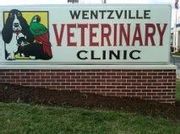
With all of the concerns surrounding the COVID-19 pandemic, there is an understandable amount of concern about the well-being of pets. With all of the misinformation about the virus, it’s essential to take stock of what is actually known about COVID-19 and how that impacts you, your pets, and the veterinarian.
What Is COVID-19?
By now, these are the known facts about COVID-19, as reported by the CDC and the American Veterinary Medical Association:
- COVID-19 is a virus from the coronavirus family. Some coronaviruses affect humans, while others affect animals.
- There are a few rare instances of animal-centric coronaviruses cross-infecting people.
- Despite the varied hypotheticals, there is not an officially vetted and recognized source for COVID-19.
- Based on the evidence collected so far, companion animals do not appear to spread COVID-19 to human owners.
- The virus spreads primarily through bodily secretions, like saliva or mucus, via coughing, sneezing, or touching contaminated items before touching your face.
 Practicing the standard, routine hygiene habits when handling any animals is always recommended since any animal may carry potentially dangerous bacteria and viruses. Continue to wash your hands after handling animals, their food, waste, or supplies.
Practicing the standard, routine hygiene habits when handling any animals is always recommended since any animal may carry potentially dangerous bacteria and viruses. Continue to wash your hands after handling animals, their food, waste, or supplies.
Don’t neglect routine or emergency visits to your veterinarian, as long as you are not sick and are following CDC guidelines to prevent the spread of COVID-19.
How Should You Manage Pets If You Contract COVID-19?
Since your animals are not likely to contract the virus, you can take a brief sigh of relief. It is important to treat your pets and other animals the same as you should treat other people if you get the virus. That means reducing contact with your animals, keeping as much physical distance as possible.
If possible, have someone who is not sick to tend to your animals for a few weeks. As always, wash your hands thoroughly before and after any interaction with your pets.
As of right now, there are no FDA approved immunization vaccines or anti-viral treatments. Since very little is still known about the nature or potential for the severity of the virus, it is all the more important that you practice the CDC suggested protocols for preventing the spread of the virus around unafflicted people and any pets or livestock.
If you’re in the Lincoln or St. Charles counties in Eastern Missouri, and you need the assistance of a veterinarian during this pandemic, you can still reach out to Troy & Wentzville Veterinary Clinic. Even during the COVID-19 pandemic, Troy & Wentzville Veterinary Clinic is still open for business. Call (636) 528-4534 or visit their website for more information on their services. They currently require customers to call ahead, and only animal visitors are allowed inside the office for now.
About the Business
Have a question? Ask the experts!
Send your question

